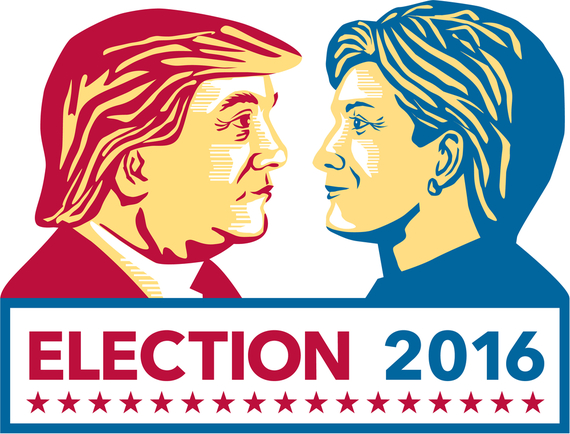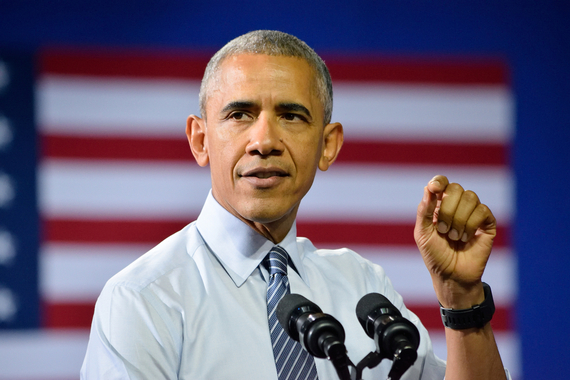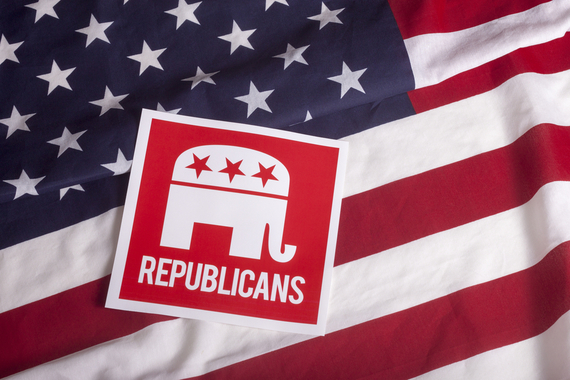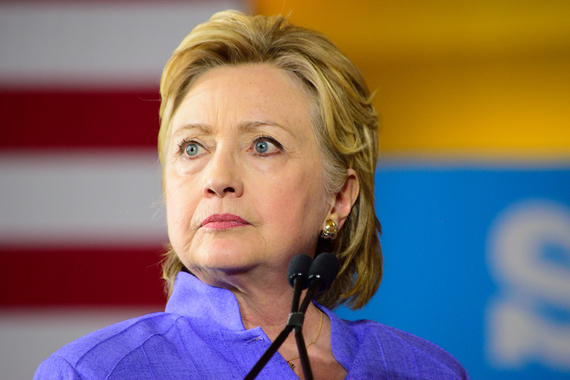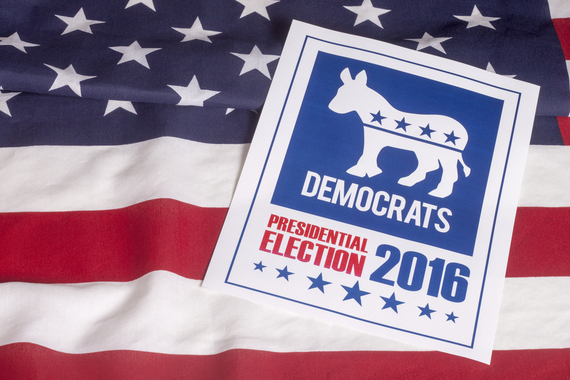Plenty of headline-grabbing words about health care and other topics have been exchanged between Donald Trump and Hillary Clinton this campaign season making for an extraordinary 2016 race to the White House. Whoever wins in November, it's expected that our next president will change health care in this nation.
The substance of what Trump and Clinton are saying about actual policy sometimes gets lost in the soundbites, so here at insuranceQuotes we thought it would help if we breakdown what the candidates want to do about Obamacare, Medicare and the private insurance providers involved.
Sure, we've heard plenty of talk about the health of each candidate, but what about your health?
The outcome at the ballot box could affect everything from your insurance premiums and prescription drug costs to whether you receive coverage at all.
Future of Obamacare
The future of Obamacare is at stake in November.
Republican nominee Trump has vowed to repeal Obamacare, while Clinton is a firm supporter. The Democratic presidential candidate and former secretary of state has called to expand the health care law by offering government-run insurance plans. Keep in mind there is only so much the next president can do on his or her own without the permission of Congress.
President Obama's signature health care law came at a time when nearly 50 million Americans were uninsured. It was billed as a solution to make insurance more affordable and accessible, particularly for low-income Americans who struggle to pay for coverage.
Studies show Obamacare has expanded coverage to more than 20 million Americans who previously did not have insurance. Since the Patient Protection and Affordable Care Act was signed in March 2010, the uninsured rate has plummeted to an all-time low of 8.6 percent, according to the Centers for Disease Control and Prevention.
For this reason, Democrats hail Obamacare a success. But critics argue the cost of health insurance is rising, because of what they say are unsustainable health care reforms.
Previously, insurance companies could reject sick people because they cost too much to cover. Obamacare requires insurers not only to cover sick people with "pre-existing conditions," but also to offer them the same price as healthy people.
This forces insurers to bear the burden of sicker people because they cannot balance the risk with higher premiums.
Lawmakers anticipated this problem and built in a remedy to solve it, but their plan hasn't been as successful as first thought.
The individual mandate requires adults to purchase health insurance, or face hefty fines. Democrats reasoned the number of sick people seeking coverage would be balanced with an influx of young, healthy people, who are less likely to rack up expensive medical bills.
RELATED: The ABCs (and D) of Medicare
Essentially, young people were intended to pick up the slack for older, sicker Americans.
The problem? The fines seem to be too small to entice young people to sign up for more expensive health care plans.
In 2016, the penalty is $695, or 2.5 percent of income. The Kaiser Family Foundation estimates the average person will pay $969. That's a far cry from the cheapest Obamacare plan. Kaiser notes that the bronze plan cost an average of $2,484 in 2015. Many young people are taking the $695 hit and not purchasing insurance.
Also, growth has been slower than expected. The Congressional Budget Office originally predicted there would be 21 million people using the government-run health care exchanges by 2016, but as of March, there were only 11 million enrolled, according to the Centers for Medicare and Medicaid.
That spells trouble for Obamacare.
The imbalance is forcing insurers to scale back as losses pile up.
VIDEO SERIES: Medicare 101
The nation's largest insurer -- UnitedHealth -- is pulling out of the exchanges next year in all but three states. The company claims it has lost $1.3 billion on the health care exchanges.
Aetna is also exiting the Obamacare exchanges in 11 states next year, amid $430 million in losses. While Humana plans to scale back by nearly 90 percent on the exchanges.
To make matters worse, an Obamacare risk corridor program that eases insurers' pain by partially compensating them for losses will expire in 2017.
The fallout could send prices skyrocketing. The Department of Health and Human Services reported insurance premiums have jumped 8 percent since last year. What's more concerning: Insurers are considering a 23 percent rate hike on average in 2017, according to ACASignups.net.
What this means is Obamacare could have a reverse effect: As insurers pull out, there will be less competition in each market, fewer options for consumers, and prices will rise, critics say.
The next president is tasked with solving this problem. Clinton plans to tinker with Obamacare, while Trump wants to scrap it and start over.
Let's take a closer look at the competing health care plans of Trump and Clinton.
Where Trump stands on health care
Trump plans to repeal Obamacare and replace it with "something much better."
"On Day 1 of the Trump administration, we will ask Congress to immediately deliver a full repeal of Obamacare," the Republican presidential candidate says in his seven-point health care plan.
But Trump cannot eliminate Obamacare on his own. He would need to rally support in Congress.
In 2016, that wouldn't be a problem. In fact, the Republican-led Congress earlier this year passed a bill to repeal the health care law, but it was blocked by President Obama.
Could lawmakers repeal it again next year? That depends. The Senate is up for grabs in November, and if the Democrats take back control of the upper chamber, most would be ideologically opposed to shutting down Obamacare.
For the sake of argument, let's say Trump wins in November and Republicans maintain control of the Senate. What happens then?
Trump's plan to dismantle Obamacare would nearly double the number of uninsured Americans. According to the nonpartisan Committee for a Responsible Federal Budget, 22 million people would lose their insurance plans because of the repeal, while only 1 million of those people would regain coverage under the replacement policies.
This would cost the economy about $550 billion over the next decade, the study finds.
But the Center for Health and Economy paints a more optimistic picture. The group released a study in July that argues Trump's plan would decrease the federal deficit by $583 billion.
Trump's plan to replace Obamacare involves a patchwork of proposals aimed at relinquishing the federal government's grip on health care and creating a free-market system.
It's starts with an overhaul of Medicaid, the government-funded health care program for low-income families. Any overhaul would require approval from Congress.
Trump would shift the responsibility for Medicaid to the states through what's known as a block-grant system. Republicans say this will give the states more control over the program, and encourage them to "eliminate fraud, waste and abuse," but critics say it could lead to massive funding cuts from cash-strapped states that would increase the number of low-income Americans without insurance.
The Committee for a Responsible Federal Budget estimated Trump's Medicaid plan could "generate significant savings." If the federal government were to freeze the block grants at the current levels, it would save $845 billion over the next decade.
But warnings sign can be gleaned from House Budget Chairman Tom Price's 2015 proposal to turn Medicaid into a block-grant program, which according to the Center on Budget and Policy Priorities, would have led to $1.8 trillion in funding cut over the next decade and left "tens of millions of Americans" without health insurance.
CHECK OUT: 6 Common Health Insurance Myths
Trump also would also seek to reduce the barriers for insurance companies to sell coverage across state lines.
Currently, federal law prohibits Americans from buying health insurance from out-of-state companies.
Trump would ask Congress to overturn this policy and open up a national health insurance market that increases competition and choice for consumers. This, he reasons, would put downward pressure on prices.
The Center for Health and Economy estimates that allowing insurers to selling across state lines would decrease premiums by as much as 37 percent by 2026.
In keeping with the spirit of a free market, Trump would also like to allow foreign pharmaceutical companies to import drugs that have been approved by the Food and Drug Administration (FDA). Supporters say this would lower prescription drug prices, but others have expressed safety concerns.
Trump would replace the "individual mandate" with tax credits. Americans would be allowed to deduct insurance premiums from their taxable income, which is the current practice for employees who receive insurance through their companies.
But participation could take a hit if Trump removes the individual mandate, critics say, causing insurance premiums to climb.
According to the Committee for a Responsible Federal Budget, the tax credits would cost the government $100 billion in lost revenue, and critics say it would only benefit wealthy people who make enough money to claim deductions.
Trump would also exempt health savings accounts from taxes, and allow the benefits to be passed onto family members.
Such a tax overhaul would require congressional approval.
Doctors and hospitals would be required to offer more transparent prices, so patients can shop for the most affordable healthcare services, under Trump's plan.
The Affordable Care Act prohibits illegal immigrants from buying coverage through the government-run exchanges, but Trump claims he can save another $11 billion each year in health care costs by more rigorous enforcing existing immigration laws. This would fall within Trump's executive authority, meaning he would not need the permission of Congress.
"If we were to simply enforce the current immigration laws and restrict the unbridled granting of visas to this country, we could relieve healthcare cost pressures on state and local governments," he wrote.
Where Clinton stands on health care
As first lady, Clinton wanted to reform health care in the 1990s but never got the major overhaul that is Obamacare. She still has health care as a top priority.
The Democratic presidential nominee has sworn to defend Obamacare from Republican attacks. She admitted there are "glitches" that must be addressed, but ultimately, she would fight to expand the healthcare law.
"As president, I will make sure Republicans never succeed in their attempts to strip away health care and that the remaining uninsured should be able to get the affordable coverage they need to stay healthy," Clinton says.
That starts with establishing a government-run "public option" that competes with private insurance companies in an effort to provide Americans with more healthcare choices and lower prices. In 2013, the Congressional Budget Office estimated this plan would save the government nearly $160 billion over a 10-year period.
Clinton would be required to obtain congressional approval, but Senate Democrats are already rallying behind her push for a public option.
Clinton would also ask lawmakers for permission to expand Medicare, the government-funded health care program for older Americans. She wants to lower the age of eligibility from 65-years-old to 55-years-old.
This would make an addition 7 million Americans who currently do not have health insurance eligible for Medicare, according to a study from the consulting firm Avalere Health.
But critics say a Medicare expansion could have severe consequences: As more older Americans compete for the same number of doctors, treatment would be harder to come by.
The Affordable Care Act also provided incentives for states to expand Medicaid coverage to more poor families. So far, 31 states have increased eligibility to families that make up to 138 percent of the federal poverty line. This has helped as many as 10 million Americans who previous did not have health insurance find coverage.
But Clinton intends to launch a campaign against the 19 states that have so far rejected the Medicaid expansion. She could do this unilaterally, because it was previously approved by lawmakers.
"Access to care should not depend on where you live," her campaign says.
CALCULATOR: Do You Qualify for a Health Care Subsidy?
"It is a disgrace that 19 states have left [4] million Americans without health insurance, because their states have refused to expand Medicaid. It is wrong that Republican governors and legislatures are leaving too many Americans without health insurance, even though the quality for coverage."
However, a recent study from the federal government won't help Clinton's push. The Department of Health and Human Services found that the cost of expanding Medicare came out to $6,366 per person. This was nearly 50 percent higher than expected.
Clinton would also wage a war against insurers and pharmaceutical companies over the rising cost of healthcare. "She will not stand for unjustified health premium increases," her campaign says.
Under Clinton, HHS would have the authority to block "unreasonable" increases in premium rates. She would also support legislation to cap out-of-pocket prescription drug costs at $250.
Clinton is staunchly opposed to Trump's immigration proposal. She would call for Congress to make illegal immigrants eligible for coverage on the health care exchanges.
She would also push Congress to double the funding community health centers that provide free medical services for tens of millions of low-income families each year. This would include a request for an additional $40 billion over the next decade.
These community health centers save uninsured Americans $1,200 each year in medical expenses, according to her campaign.
Clinton would also get behind telehealth efforts to expand coverage in rural areas.
However, you may be able to find a Medicare Advantage plan from a private insurer that covers part of the cost hearing loss testing and treatment.
This article was originally published on insuranceQuotes.com.
Laura Adams is a personal finance expert, award-winning author, host of the top-rated Money Girl Podcast, and insuranceQuotes' senior analyst. For more on auto, home, health, life, and business insurance, click here.

